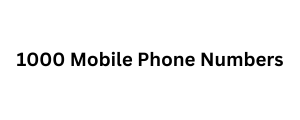Beauty as a Marketing Category
While “beauty is in the eye of the beholder” (i.e., subjective and evaluative), such a relationship certainly exists and is statistically significant. It turns out that if you ask several marketing experts to rate the attractiveness of a market target, they will give comparable answers.
Economist Dan Hamermesh Beauty as a Marketing Category
analyzing data from several Beauty as a Marketing Category surveys that included attractiveness ratings and income measures, calculated that the most attractive workers earn about 10% more than the worst 1
Our work with email lists. We can help the people of all job function email list countries. So that they may add to the era of good thinking and the people may become better and better. Because a country and people will improve as much as the poor will be improved by placing the Toto .
1). In general, the relationship between attractiveness and wages is stronger for men than for women.
2). The beauty effect is observed in both front-office (customer-facing) and back-office (non-customer-facing) jobs, suggesting that employers may discriminate against less attractive people.
3). Attractive people are also more likely to get loans.
4). Attractive political candidates are more likely to be elected.
5). Attractive defendants in criminal cases have a better chance of being acquitted.
6). Attractive students get higher grades for their class presentations. Attractive professors – even economics professors – get higher teaching grades.
That this connection is deep and metaphysical is evidenced by the fact that even babies look longer at beautiful faces. Can you imagine?
This phenomenon is called ‘lookism’. Although Russian law prohibits discrimination against candidates based on gender and age when hiring, Russian law does not regulate discrimination against people based on their appearance.
Why is all this about marketing? Beauty as a Marketing Category
0). Well, first of all, career… When you come to get a job, you don’t need to look “better”: you need to be attractive. That is, understand what attracts people, possess it and demonstrate that you have exactly this, and not an abstract “better”.
1). Well, since attractive “beauty” is subjective, study what the employer or consumer considers “attractive” and… DO NOT “attract” (advertisement and promotion) but mimic their understanding of “attractive”.
2). In general, sales are an economic category. This means that the most attractive product is the product with a greater benefit, purchased for less money. So, it is easier to attract economically!
3). But the seller / buyer relationship goes beyond classical economics (that is why marketing exists).
If your marketing subject is not economically attractive, you should remember the theory of comparative advantage and it is important to:
focus on other strengths: product, relationships, methods of sale / purchase, availability of purchase in time and place.
understanding what “attracts”, comparing with what the employer or buyer understands, convey the attractiveness of you (your product).
No need to seem better
There is no need to “entice” (advertisement, promotion) – it is very what are the people in the company expensive and, often, ineffective, because if you do not know what “attracts”, then you do not guess and miss. You need to become the one who attracts. Well, hire attractive people to work with clients, and not experienced, but repulsive answer by points analysis of the phrase, concept and problems of analytics and prediction in marketing:
Predictive – this is from the word predictive (predictable, prognostic, forecast). Predictability (predictability) is a characteristic of activities aimed at the future (!): forecast, prediction.
Analytics is always a retrospective, that is, a look into the past (!) and an attempt to monitor, systematize the collected data, understand and confirm the stated assumption regarding the causes and effects of what happened. Analytics allows you to make a plan for the near future, but does not aim to confirm from the past an assumption regarding the prospective and forecasting a certain event in the future. Forecasts are responsible for this.
Henry Mintzberg
professor of management at McGill University (Montreal), very accurately noted the discrepancy between planning and forecasting.
Planning is always related to analysis – to dividing a goal or a complete list of unit phone numbers set of intentions into stages, formalizing these stages in such a way that they can be carried out almost automatically, and formulating the expected consequences or results of each stage…
Strategic thinking, on the contrary, is related to synthesis. It is associated with intuition and creativity. The result of strategic thinking is an integrated vision of the future of the enterprise and a not very precisely expressed direction of movement.


